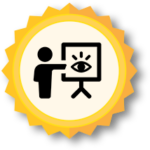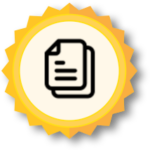Fulton Difference Programs
 Overview and Introduction: The WHAT and WHO
Overview and Introduction: The WHAT and WHO
While the Fulton Schools is one of the largest, most comprehensive engineering programs in the country, it has scaled with its growth and designed a small school culture by allowing students to customize their path to a degree. Known as the Fulton Difference, this group of programs builds a culture that keeps students engaged with each other and faculty at a personal level. The Fulton Difference has grown from a unique orientation to engineering (E2 camps) to a suite of services and programs that support student organizations, undergraduate students in research projects and teaching, and social and business entrepreneurship.

 Implementation and Timing: The WHEN, WHERE, and HOW
Implementation and Timing: The WHEN, WHERE, and HOW
Fulton Difference programs run throughout the academic year with offerings mainly during the fall and spring semesters, with some programs offering summer opportunities. Programs may have specific deadlines to apply or participate for the upcoming semesters.
These programs range from extracurricular to co-curricular programs with online and in-person options. The Fulton Difference programs are open to all currently enrolled Fulton engineering students.
Fulton Undergraduate Research Initiative (FURI) + Master’s Opportunity for Research in Engineering (MORE)
FURI and MORE enhances a student’s engineering experience and technical education by providing hands-on lab experience, independent and thesis-based research, and travel to national conferences. Both programs are open to all Fulton students in at least their second semester of their program who are in good academic standing. FURI is open to undergraduate students and MORE is open to Master’s degree students.
Fulton Student Organizations (FSO)
There are over 60 FSOs that range from honors and professional associations to groups creating underwater robots, concrete canoes, and launching rockets. Student organizations are excellent opportunities for students to learn about career possibilities as many of the student groups operate in conjunction with industry professional societies.
Engineering Projects in Community Service (EPICS)
EPICS is an engineering design-based service learning and social entrepreneurship program that incorporates the engineering and human-centered design processes in providing solutions to real world problems facing society. Students work on real-world projects with local and global community partners with a social-focus on either community development, health, sustainability, and/or education.
Entrepreneurship + Innovation (E+I @ FSE)
E+I @ FSE empowers students to think entrepreneurially by inviting them to engage, learn, and venture into entrepreneurship space. Students can utilize makerspaces, attend Make It Happen events, take entrepreneurship courses, or create their own startup and receive funding and mentorship through Venture Devils.
Grand Challenges Scholars Program (GCSP)
GCSP combines innovative curriculum and cutting-edge research experiences into an intellectual fusion that spans academic disciplines and includes entrepreneurial, global, and service learning opportunities. Fulton Engineering students who complete the program will achieve the distinction of Grand Challenges Scholar, endorsed by both ASU and the National Academy of Engineering (NAE), and will be uniquely prepared to collaborate and succeed in a transdisciplinary and global environment.
Fulton Career Center
The Fulton Career Center hosts on-campus and virtual career fairs every semester along with resume and cover letter help, interview best practices, career coaching, and support finding internships.

 Rationale and Research: The WHY
Rationale and Research: The WHY
Extracurricular programs have become an increasingly accepted strategy to provide necessary skills to students in recent years (Foreman & Retallick, 2012). Leadership skills, academic achievement and persistence, interpersonal skills, peer-to-peer interactions, and positive faculty interactions are also all positively impacted by extracurricular activities (Astin, 1977; Astin, 1993; Foreman & Retallick, 2012).
Students need more than traditional coursework to be competitive and successful in their careers. Experiential opportunities, like those offered in the Fulton Difference Programs, are integral components of the Fulton Schools experience and the skills students gain will help prepare them for whatever they choose to do after graduation.

 Additional Resources and References
Additional Resources and References
This QRG is adapted from content from various content on engineering.asu.edu pages. Discover more at:
- Discover the Fulton Difference
- Customize Your Experience (Student Resource – Make your Map)
Astin, A. (1977). Four critical years (1st ed.). Jossey-Bass Publishers.
Astin, A. (1993). What Matters in College. Liberal Education, 79(4), 4.
Foreman, E. A., & Retallick, M. S. (2012). Undergraduate involvement in extracurricular activities and leadership development in college of agriculture and life sciences students. Journal of Agricultural Education, 53(3), 111.